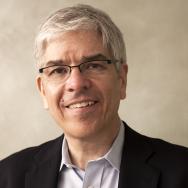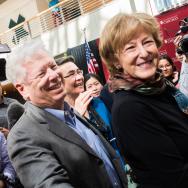Nobel laureate Abhijit Banerjee visits UChicago, discusses gulf between scholars and public
Early in his career, economist Abhijit Banerjee didn’t see himself writing books for broad, non-expert audiences. Now, on the heels of receiving the Nobel Prize and releasing his latest book Good Economics for Hard Times, Banerjee is spending considerable time focused on clearing up public misconceptions about economics and, ultimately, rebuilding public trust in the field and its ability to contribute solutions to today’s most urgent problems.
“We’re talking about many things now where I think economics have a great deal to say, and I think what’s striking is how little we are being listened to,” said Banerjee, the Ford Foundation International Professor of Economics at the Massachusetts Institute of Technology. “On issues that we have views on, and in particular, issues on which most economists agree, it turns out that the rest of the world just disagrees.”
This gulf—and how economists responded—was central to Banerjee’s conversations on Nov. 19 with three of the University of Chicago’s leading economists: Katherine Baicker, dean of the Harris School of Public Policy; Steve Levitt, the William B. Ogden Distinguished Service Professor of Economics; and Michael Greenstone, director of the Becker Friedman Institute for Economics and the Milton Friedman Distinguished Professor of Economics. They were joined on stage by Wally Adeyemo, newly appointed president of the Obama Foundation.
More than 700 people attended the conversation hosted by the Becker Friedman Institute.












